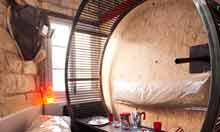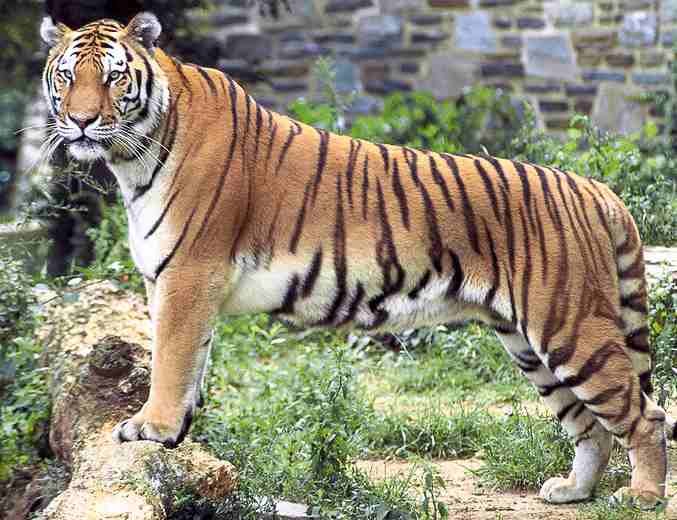Was yesterday, and in a lovely moment of serendipity I finally managed to catch an episode of
My Life in Books last night
. For weeks now, Anne Robinson has been interviewing celebrities about their favourite books, and for the exact same number of weeks (spooky!) I've been forgetting to watch her do it.
Each week she asks two celebrities (Sarah Millican and Larry Lamb in this case) to talk about five books which are important to them for one reason or another. There is some sort of category system in place but having missed most of the programs and only having seen bits of some others I'm not entirely sure what this involves. Based on what I've seen the first book they pick is a childhood read, the next three broadly cover the teenage years / university / adulthood in that order, but not necessarily one of each, and then finally they choose a 'guilty pleasure'. Dan Snow, who I saw on the iPlayer, picked
Love In The Time Of Cholera as his guilty pleasure which makes me think Dan Snow and I have very different definitions of the concept 'guilt'. At the end the celebrities pick one of the five as their absolute favourite (a-la Desert Island Discs) and then finally they are asked to contemplate what their choices say about them.
I've been trying to work out what my answers would be. First thoughts:
Childhood Read: So, so many to choose from. As a kid I harboured ambitions to be either a detective or a spy when I grew up (these vocations were more or less interchangeable in my mind, which seems a little odd in hindsight given they're essentially on opposite sides of the law). So if I was actually invited on to the program I'd almost definitely pick a book called
The Spy and The Mission of Staggering Importance; a little known story about a bumbling, inept spy. Mainly because it's out of print now, and when I tried to track down a copy recently the only one I could find was on eBay and cost about sixty pounds. I'm assuming that if I was to appear on the program someone in the BBC production department might have to fork out for one.
Back in the real world, my answer to this question would probably have to be a series: Trixie Beldon, possibly, or maybe Nancy Drew. Perhaps even the Mallory Towers books by Enid Blyton. Anything with a tomboy-ish, independent female as one of the main characters, and preferably one who did some detective work on the side. These books weren't necessarily the best written, or the most influential or the ones which touched my heart the most, but I consumed books in ridiculously huge quantities all the way through my childhood, so books which there were more than one of held a certain appeal.
The Next Three: Here's where it gets tricky. As a teenager I still loved reading but I didn't particularly enjoy English lessons; mainly because by the time we'd spent wringing every last piece of analysis out of a text I was sick to the back teeth of it. The exception was
To Kill a Mockingbird, which I read at school when I was about 14 and which I still adore. Just yesterday someone on Facebook posed the question "who is your hero?" and I didn't even have to think twice - mine is definitely Atticus Finch. I have always had a low tolerance for injustice and value compassion over just about anything else; it's only just occurred to me that this book is almost definitely one of the reasons why.
The next book on my list is
Memoirs of a Geisha, because it's one which truly astonished me. Twice. When I started to read it I knew next to nothing about Japanese culture or the Geisha world, and could barely believe what I was reading. Not because it seemed unrealistic, simply because it was so far removed from my own experience and knowledge of the world. I was, as mentioned, astonished. Once I'd finished it, I turned to the acknowledgements and discovered the main character was completely fictional. This was my second moment of astonishment, and that second moment is the reason this book makes my list. I should point out, for those who haven't read it, that it's written by a Western man (his name all over the cover), so the fact that he isn't really a Geisha is hardly the sort of realisation which requires an enormous cognitive leap. Even so, it was a cognitive leap I found incredibly hard to make. (It also reminds me of the horses on stage in
Warhorse (
have you still not seen Warhorse yet? Go and see Warhorse) and how it was still a bit hard to believe they weren't real horses even though the puppeteers who operate them were right there on the stage.) This book makes the list because it made me properly, properly appreciate one of the fundamental things I admire in writers; their ability to conjure up believable people and places with nothing but words. I always knew they did this, but this was the first book which really made me understand it's what writers do.
The last book in this section feels like I'm cheating a bit because it's also one Larry Lamb chose and I'm not sure I would have remembered to consider it if he hadn't. So I'm glad he did. Although I've always had a strong sense of right and wrong, and a propensity to get a bit cross when people cross that line, the goalposts have changed somewhat over the years. When I was younger, it was simple. Taking drugs and committing crimes was wrong. Lying and stealing and cheating was wrong. Now, of course, I know it's a little more complicated than that, and
A Million Little Pieces by James Frey is a book which makes me remember just how complicated. It's also a book which reminds me how much I've changed over the years. It's a memoir, of sorts; James Frey is someone who, once upon a time, I would have been very cross with indeed. He's an alcoholic drug addict, who commits crimes and is horrible to people and if you listen to what Oprah Winfrey has to say about him you'll probably want to add 'cheater' and 'liar' to that list as well. (For what it's worth, I don't think you should pay too much heed to what Oprah Winfrey has to say about him.) This account of his battle with addiction, his journey through rehab and his attempts at rehabilitation is graphic and uncomfortable in parts, but also incredibly moving. Whether you view it as a memoir or a work of fiction (and debate has been raging ever since it was published), it's a powerful piece of storytelling, and one which completely altered the way I think. Atticus Finch might have taught me the importance of compassion, but James Frey is someone who challenged me to practice it.
Guilty Pleasure: The book I read for pure enjoyment, and which I have returned to time and again over the years, is
Gone With the Wind. I'm not madly in love with the characters and it doesn't say enormous things, but it was the first big, sprawling epic I properly got my teeth into, and I've read it so often now that I can slip into the story almost effortlessly. It's a pure comfort read; going back to Tara is like visiting old friends.
You're not *really* going to make me pick just one of these books as a favourite, are you? If I was really pushed (and it would have to be quite a shove) I'd probably say
To Kill a Mockingbird because it does a little bit of what each of the other ones does. As for what my choices say about me? Mainly, I think, that books are part of my identity. Maybe even the most important part.They've helped to shape the way I think, and how I feel and who I've become. Although I would like to make it clear, at this point, that I am not actually a spy. (As far as you know.)
So now you've see my list, it's your turn. Which books would make yours? The rules are simple: one childhood favourite, one guilty pleasure, and three which come in between.







 **There was a fourth image, but Blogger
**There was a fourth image, but Blogger






